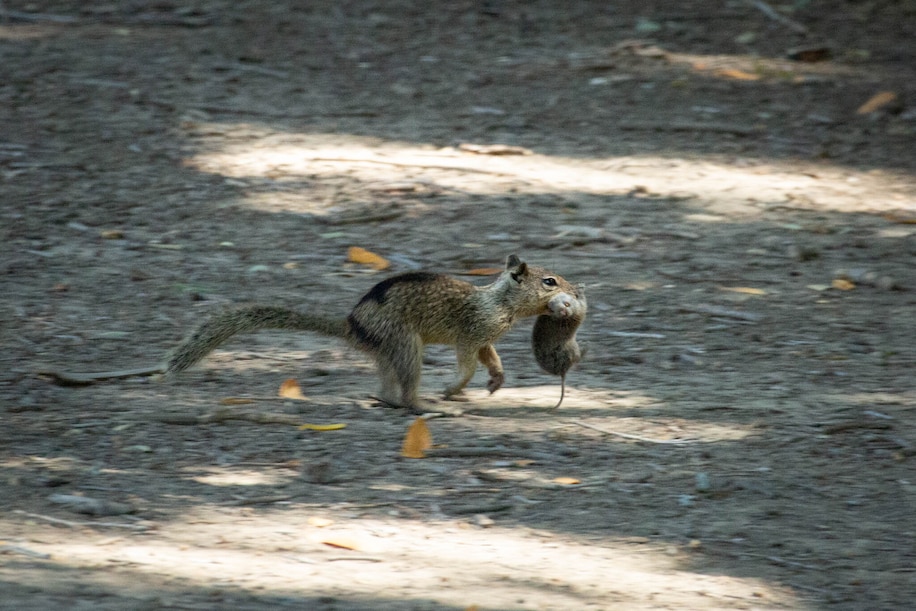A major question remained: What caused squirrels to hunt voles? A large increase in vole population in California this summer prompted the unusual behavior, according to Smith and Wild.
Vole populations peak every four to eight years in many areas before rapidly declining, according to the University of California’s pest management program. Smith and Wild said 2024 was a peak year, and squirrels saw the abundance of voles as another source of high-energy meals.
Cory Williams, an associate biology professor at Colorado State University who wasn’t involved in the study, supported the researchers’ theory, telling The Post that ground squirrels sometimes eat small mammals when that species sees a population boom.
“Because it’s so foreign to us, it seems like super crazy,” Williams said of squirrels hunting. “But it’s one of those things when you’ve got a species out there that can take advantage of something like this, you know, they will do so.”
Briones Regional Park’s squirrels will probably return to their normal diets after the vole population returns to normal, Smith said, but there are other ways eating voles could impact the local squirrel population.
Squirrels are mostly income breeders, meaning they can produce more offspring if they eat more, so Smith wonders if eating voles could cause squirrels to have more babies. She has other unanswered questions, such as how widespread hunting is among squirrels and if they learn to hunt by nature or nurture.
“It will be exciting to see what happens next,” Smith said, “and if, given their new found taste for meat, squirrels target other animals in the future.”

This is what's playing on a TV in the background in the opening minutes of a B-movie about killer squirrels.
The squirrels have acquired a taste for flesh.
And now they seek the most dangerous game: Humans.
Being eaten alive by cute killer squirrels is my way to go out.